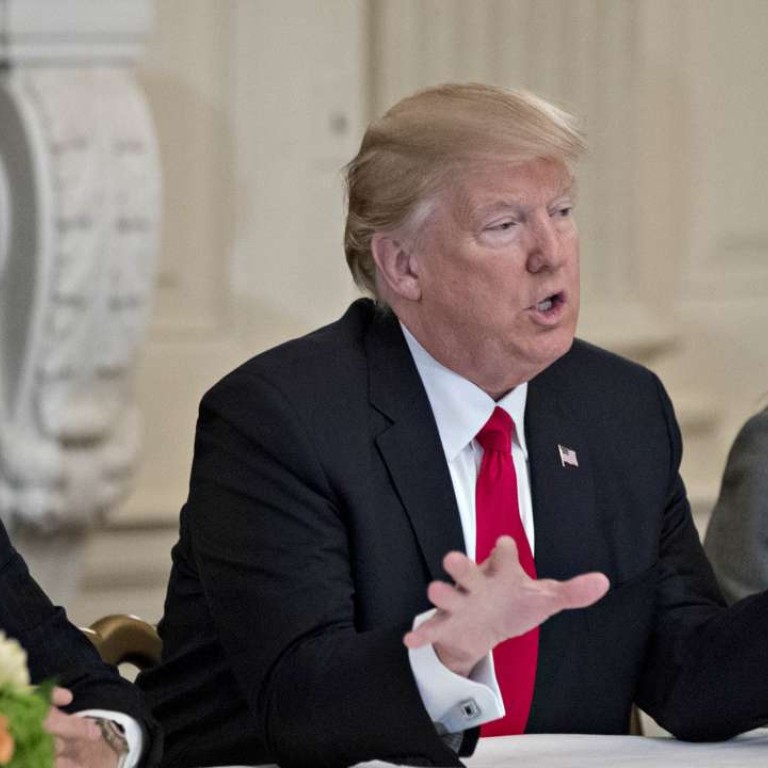
Update | Trump signs orders rolling back Wall Street reform
President Donald Trump took his first steps aimed at scaling back financial services regulations, and the Republican-run Congress cast a vote early Friday signalling it’s eager to help.
The president signed an executive order that will direct the Treasury secretary to review a 2010 financial oversight law, which reshaped financial regulation after the 2008-09 financial crisis.
Trump also signed a presidential memorandum that instructs the Labor Department to delay implementing an Obama-era rule that requires financial professionals who charge commissions to put their clients’ best interests first when giving advice on retirement investments. The ‘fiduciary rule’ was scheduled to go into effect in April.
While the financial oversight order won’t have any immediate impact, the administration’s intent is clear.
The move would address another one of Trump’s campaign promises: dismantling 2010’s financial overhaul legislation, known as Dodd-Frank. The legislation forced banks to take various steps to prevent another financial crisis, including holding more capital and taking yearly “stress tests” to prove they could withstand economic turbulence. The financial industry, particularly its small community banks, complained the rules went too far.
“We expect to be cutting a lot out of Dodd-Frank,” Trump said during a meeting with business leaders Friday morning. “Because frankly, I have so many people, friends of mine, that had nice businesses, they just can’t borrow money . . . because the banks just won’t let them borrow because of the rules and regulations in Dodd-Frank.”
Earlier on Friday, the Senate used an unusual pre-dawn vote to approve legislation, 52-47, killing a regulation that has required oil and gas companies to disclose payments to the US or foreign governments for commercial development. The House approved the measure this week, and Trump is expected to sign it.
Republicans said the rejected regulation gives foreign competitors valuable information about US firms and would hurt the economy. Democrats said erasing the requirement means big companies will be able to hide questionable dealings with foreign governments like Russia.
These efforts are sure to anger Democrats in Congress and progressive groups who argue Wall Street needs more oversight - not less. It will also bolster critics who say Trump, despite promising during the campaign to “drain the swamp,” has become cozy with Wall Street since the election.
Trump has tapped several Goldman Sachs alumni for key positions in his administration, and his strategic and policy panel is led by Stephen Schwarzman, founder of Blackstone, a massive investment firm.
Senator Sherrod Brown, Democrat-Ohio, a member of the Banking Committee, quickly pounced on Trump’s effort to roll back the fiduciary rule.
“President Trump’s action will make it harder for American savers to keep more of what they earn,” Brown said in a statement.
Trump has said Dodd-Frank is a “disaster” and that he would do “a big number” on the legislation. But it is unclear exactly which provisions he is likely to curtail or kill. The law gave the government new authority to seize and wind down large, troubled financial firms, set up a regulatory council to monitor threats to the financial system and mandate oversight of the vast market for derivatives, the instruments that helped fuel the crisis.
Big banks, which have spent millions complying with the law, have called for a tweaking of the rules, rather than a complete overall. Adjusting to a new regulatory environment would be too costly, they say. But smaller banks are expected to push for more aggressive changes. They say they are too small to pose a threat to the financial system but still face extreme regulatory burdens.

“Many of the regulations created by Dodd-Frank would be difficult to eliminate without action from Congress, but there are a number of changes that regulators can make (especially on the enforcement of these rules) which could have a significant impact on the business models of banks and other financial services firms,” Edward Mills, a policy analyst at investment bank FBR Capital Markets, said in a research report Friday morning.
The administration’s efforts could also land on the Consumer Financial Protection Bureau, which was created by Dodd-Frank. Republicans have been pushing for an overhaul of the way the agency is run, including calling for its director, Richard Cordray, to be fired.
But Democrats say the independent agency has played an important role in cracking down on big banks and corporations accused of misleading consumers. They have stepped in to defend the agency and Cordray over the last few weeks.

Trump’s actions are aimed at attacking “over-regulation,” Gary Cohn, the director of the National Economic Council, said in an interview with Fox Business Network. “We have to get the United States banking system working again.”
“Today banks do not lend money to companies. Banks are forced to hoard money because they’re forced to hoard capital and they can’t take any risk. We need to get banks back in the lending business. That’s our number one objective,” Cohn said.
Cohn met with Republicans on the House Financial Services Committee Friday morning to discuss the effort. Representative Jeb Hensarling, Republican-Texas, chairman of the Financial Services Committee, is expected to unveil legislation soon to overhaul Dodd Frank.


